BLG Logistics has reorganised its Contract division as part of a new tactical project called Roadmap 2027, directing the company toward greater resilience and profitability. Matthias Magnor, head of Contract at the company, outlines the regional realignment and reorganised market focus
BLG’s contract logistics services cover procurement, production and distribution logistics, returns and spare parts, as well as forwarding services. Under the leadership of Matthias Magnor, who was appointed head of the Contract division in October last year (and who will take over as chief operating officer (COO) of both Contract and Automobile in December this year), BLG has put in place what it calls a ‘matrix light’ reorganisation of regional management and a redefinition of its target markets.
BLG generates 92% of its contract logistics revenue in Germany across 40 locations. Of the annual revenue of €1.2 billion ($1.23 billion) that BLG makes, the Contract division generates around €550m. As well as Germany, the company also has smaller footprints in South Africa, the US and Asia.
Contract logistics now has a clear alignment in Germany, with operations divided into eight regions, each headed by one regional manager. Magnor says that organisation will put the BLG teams closer to the customer and boost entrepreneurship in the regions.
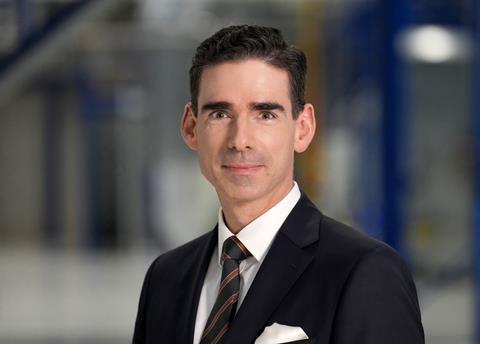
Law of three
In terms of its market alignment, BLG’s Contract division was originally divided into the business fields of industrial and retail. Today, they are combined under the Customer and Business Development unit, which addresses three market segments: Mobility, covering automotive and mobility-related sectors; Industry and Energy, focused on all activities supporting plant and machine engineering, and energy sectors; and Consumer and Fashion, which covers retail.
The merging of the industry and retail operations into the Customer and Business Development unit, and the regional alignment in Germany, has brought BLG structural cost savings of 15%, according to Magnor.
“That was not the primary focus but it’s nice to have. It puts us in a more favourable financial position for greater success in future businesses,” he says. ”With the reorganisation, we have adapted our organisation to the requirements of the market.”
BLG has also defined a third supporting function to its contract logistics operations covering performance improvement, quality, health, safety and environment (QHSE) topics, as well as finance and control. That new unit operates under the title of Performance Support.
“They are improving the operational and financial performance,” says Magnor. “They are the muscle ensuring operations and sales arrive at financially sustainable figures.”
Local representation
According to Magnor, the reorganisation of its German locations under eight regional management centres is strengthening the market connections BLG has with its customers in each region.
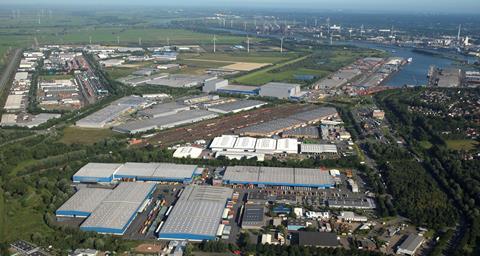
“We have grown over the 10-15 years from Bremen [in northern Germany] outwards into the regions… but what we have lacked so far is traction and market connection within those regions.”
To improve that Magnor stresses the importance of local representation embedded in each region, rather than managers travelling to each location from the company’s base in Bremen.
“Contract logistics is a people business,” says Magnor. “It is like getting married. Cooperation is based on partnership and an open, trusting exchange with our customers forms the foundation. In all projects, their wishes and needs are our focus.
Contract logistics is a people business. It is like getting married. Cooperation is based on partnership and an open, trusting exchange with our customers forms the foundation. In all projects, their wishes and needs are our focus – Matthias Magnor, BLG Logistics
According to Magnor, future success for BLG is directly correlated to the understanding the company has with its customers’ needs across the sectors, including automotive, and that feeds out into new customers through the transfer and sharing of knowledge.
“We have a brilliant knowhow when it comes to automotive industry and when it comes to automisation,” he says. “We now strive to develop the same level of detailed understanding of the industry for all energy industry-supporting activity.”
Siemens is one of BLG’s biggest customers for the aftermarket in the energy sector but the company is eager to gather more customers from wider industry and establish itself more strongly as the go-to provider of logistics services.
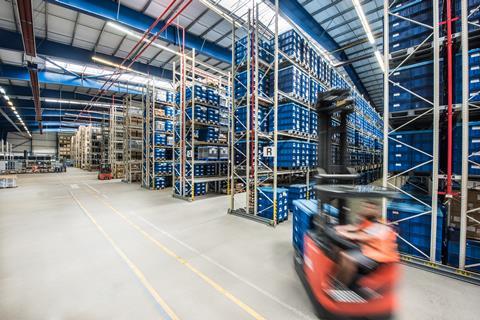
Closer customer focus
A bridge toward that is the proven ability to provide agile services to customers at a time of disruption, which certainly defines the last three years.
“That comes back to a more regional focus, being closer to the customer and being closer to what is happening, and managing the operations on a more decentralised basis,” says Magnor.
That is linked to a fundamental paradigm shift in the automotive supply chain now underway. The automotive industry is looking for greater security through robust inventory control that is not religiously tied to a just-in-time, one piece inventory model. At the same time, it has to monitor the costs related to warehousing. Customers across the mobility, energy and consumer sectors are still not confident in what the supply chain will look like in six months.
“As we don’t know, we have to be as flexible as possible and adapt as quickly as possible to those changing conditions,” says Magnor. “We are moving away from those zero-inventory, high-speed, high-performance, rigid operational set ups toward more flexible, resilient and robust set ups.”
Electric revolution
At the same time as it looks for greater resilience in operations, the automotive industry is going through one of the biggest structural changes in its history – the switch to electrification. That has a profound impact on inbound and service parts logistics because there are far fewer parts in a battery electric vehicle (BEV). For example, the drivetrain in a vehicle driven by an internal combustion engine (ICE) has around 2,000 moving parts compared to 20 in a BEV.
We have to be as flexible as possible and adapt as quickly as possible to those changing conditions. We are moving away from those zero-inventory, high-speed, high-performance, rigid operational set ups toward more flexible, resilient and robust set ups – Matthias Magnor, BLG Logistics
At the same time, however, BEV parts are more high-value and complex to handle, starting with the battery. The lithium-ion battery is far heavier and has to be handled as a Class 9 dangerous good under the United Nation’s ADR treaty governing international carriage.
“We have more complexity when it comes to fire protection, warehouse buildings and the certificates we need to operate those buildings,” says Magnor. “Health and safety becomes a much more important issue.”
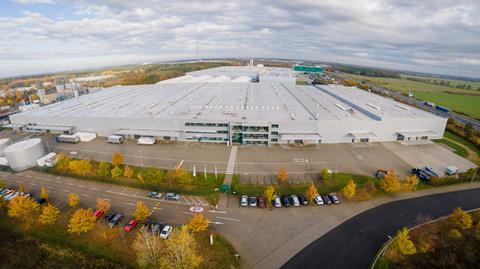
There is also the question of recycling those vehicle batteries, a reverse-logistics industry that is in its infancy. Magnor says the automotive industry needs to develop a thorough understanding of what needs to be done, and how logistics service providers can support the process to recuperate rare earth metals and use them in the production of new batteries. BLG is now working with one such recycling company to gain a better understanding of what needs to be done and position itself at the forefront for new recycling services.
In the US, meanwhile, BLG will be providing services for battery provider CATL at a plant currently being converted from the former Eberspächer exhaust technology facility in Northport, Alabama.
Chinese imports
A better understanding of the logistics services required to support the BEV future is a clear priority in Europe. Part of that is being aware of the Chinese brands that are beginning to enter the market. Chinese OEMs accounted for just under 5% of BEV passenger car market in western Europe, according to Schmidt Automotive Research.
Magnor reflected on the ground lost by European carmakers, who until relatively recently continued to focus on getting the best performance and fuel consumption from the ICE vehicle when China was gaining the competitive edge in BEVs.
According to Magnor, those Chinese carmakers are coming to Europe and that will have an impact on the contract logistics services BLG provides.
“We need not only focus on German OEMs but also the Japanese, Korean and especially the Chinese OEMs,” he says. “We need to offer something to them to better serve the German and European market. And then we come to spare parts and aftersales, and recycling.”
We need not only focus on German OEMs but also the Japanese, Korean and especially the Chinese OEMs. We need to offer something to them to better serve the German and European market – Matthias Magnor, BLG Logistics
Price increases
Another focus for any future customers has to be a more favourable financial position in the terms of contracts awarded. Magnor says that BLG was happy to take on the risk of fluctuating cost for services when the inflation rate was between 1.5-2%. In Europe it is now at 10+%, added to which, employee unions across the logistics industry are asking for pay rises that at least match inflation and in many cases exceed it.
“That is putting us in a dire situation and we need to talk to our customers [with whom] we still have three or four years of contractual arrangement, and where we would be bound to the prices we agreed to two years ago,” says Magnor. “That is my priority number one – either hedge it or pass on those price increases to our customers.”
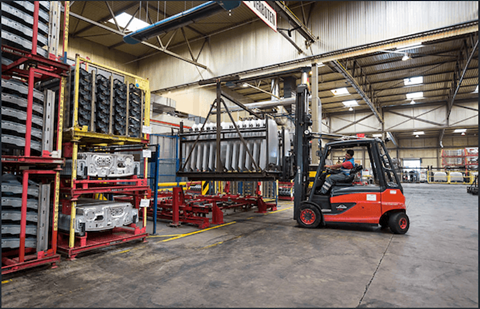
According to Magnor, carmakers are currently making a lot of money because demand is high, but they need to share some of the benefit with logistics providers at a time when margins are being squeezed and contract terms remain short.B
The business climate in Europe has changed in the face of ongoing disruption across the industrial sector and that has forced BLG to some last-resort strategies when it comes to customer contracts. Germany’s BGB civil law (Bürgerliches Gesetzbuch) establishes the opportunity for either party of an ongoing continuing obligation to terminate, under certain conditions, a contract for a compelling reason without any notice period. The option can be used if the commercial conditions have changed to one party’s disadvantage in a way that party cannot be held responsible, but which prevents them from doing what was originally promised. According to Magnor, BLG Contract Logistics has been forced to do this with one company, following the energy price inflation in the wake of the Ukraine war.
“EBIT margins in contract logistics have not benefitted from what we see in air and sea freight over the last two years,” says Magnor. “They had a good time but that is not true for contract logistics, so we need to talk to customers and convince them that we need to pass on the price increases.”
That is something Asian OEMs seem more willing to negotiate, says Magnor, which bodes well for its move to attract customers outside of the traditional German manufacturers and provide services that are more resilient for the future.
In profile: Matthias Magnor
Matthias Magnor has extensive expertise in the areas of supply chain management, logistics, services and trade. He joined BLG Logistics in October 2021 as head of the Contract Logistics division, replacing Jens Wollesen. Prior to that he was chief operating officer (COO) at Hellmann Worldwide Logistics.
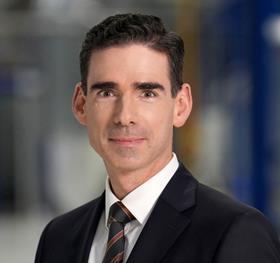
Magnor was with Hellmann Worldwide Logistics for about 15 years, joining as managing director for project management in 2003. He served as CEO for LH Bundeswehr between 2014-2015, the joint venture Hellmann set up with Lion Apparel and the Federal Ministry of Defence in Germany, before becoming COO for road, rail, courier, express and parcel at Hellmann in 2016, a role he held until joining BLG.
In November, BLG Logistics merged the two board departments responsible for Automobile, which chairman of the board Frank Dreeke was currently responsible for on an interim basis, with Contract Logistics. Magnor moves to the newly created position of COO overseeing these merged departments.
BLG says the creation of the position of COO goes hand in hand with an “organisational mirroring of the responsibility for finished vehicles and contract logistics” towards its customers, particularly the large automobile manufacturers. There will be no reappointment to the executive board for the Automobile division.
“With this decision, BLG Logistics is setting the course for the future by relying on a modern management board structure,” comments Dr Klaus Meier, chairman of the supervisory board. “We are very pleased that we were able to win Matthias Magnor for this challenging task. Due to his undisputed professional, personal and communication skills, he is the ideal candidate for the new position of COO.”


























![Global[1]](https://d3n5uof8vony13.cloudfront.net/Pictures/web/a/d/s/global1_726550.svgz)




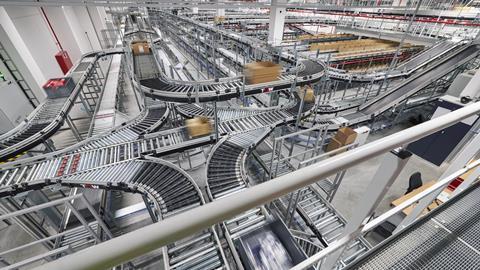









No comments yet